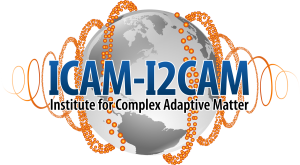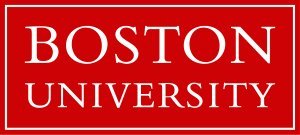NOTE: Because of current weather conditions, the public lecture has been cancelled!
Workshop dates: March 11 – 14, 2018
Workshop location: Rajen Kilachand Center, 610 Commonwealth Avenue, Boston, MA 02215
Motivation
In recent years, there has been dramatic progress understanding the quantum dynamics of many-body systems due to insights from many different sub-fields, including condensed matter, quantum optics, high energy physics and quantum information. Many of these developments have been stimulated by the cross-fertilization of ideas in small inter-disciplinary workshop settings. This BU-CUNY workshop continues in this tradition and aims to bring together a group of creative experts, young and old, to push the non-equilibrium frontier. In this workshop there are two main topics which will be discussed:
- The attempt to unify concepts between classical mechanics and high energy physics on glassiness, scrambling, chaos and thermalization in the context of many-body quantum systems.
- Theoretical ideas in dynamical control of quantum information motivated by recent exciting experiments in superconducting and quantum optical platforms demonstrating small-scale coherent quantum computation.
This workshop shares many attributes with its predecessors, e.g. it adheres to the same formula with emphasis on short talks, long open discussion periods and a large fraction of junior participants including speakers.
Special Public Lecture: Realizing Feynman’s Dream of a Quantum Simulator
Immanuel Bloch
Max Planck Institute of Quantum Optics
Abstract: More than 30 years ago, Richard Feynman outlined his vision of a quantum simulator for carrying out complex calculations on physical problems. Today, his dream is a reality in laboratories around the world. This has become possible by using complex experimental setups of thousands of optical elements, which allow atoms to be cooled to Nanokelvin temperatures, where they almost come to rest. The atoms can then be trapped and manipulated in arrays of millions of microscopic light traps. Such light crystals allow an unprecedented view into the microscopic world of quantum materials and enable the currently most precise atomic clocks, fundamental to next-generation timing and navigation. In this public lecture, Immanuel Bloch will explain how such quantum simulators are realized at the lowest temperatures known, and highlight their applications, which range from condensed-matter physics and statistical physics to ‘table-top’ high-energy physics.
Workshop Organizers:
- Chris Laumann (BU)
- Anushya Chandran (BU)
- Anatoli Polkovnikov (BU)
- Vadim Oganesyan (CUNY)
- Sarang Gopalakrishnan (CUNY)
Workshop Student Organizers:
- Phillip Weinberg (BU)


Workshop Sponsors:
- Boston University
- ICAM
